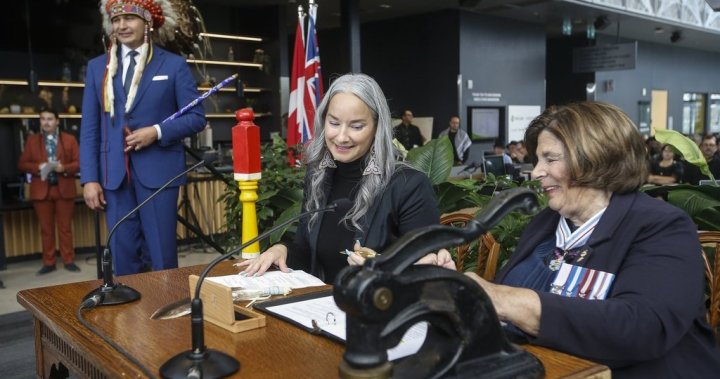In an unexpected turn within Manitoba’s political circles, Premier Wab Kinew confirmed Tuesday that a cabinet minister who raised complaints about an American Sign Language (ASL) interpreter will remain in their position despite the controversy. The incident has ignited discussions about accessibility expectations for government officials and public communications in the province.
“I’ve spoken to the minister. We’ve addressed the issue, and they’ve taken accountability,” Premier Kinew told reporters during a media availability in Winnipeg. “While I won’t be removing them from cabinet, I want to be absolutely clear that accessibility is a fundamental priority for our government.”
The controversy emerged when a minister, whose identity has not been publicly disclosed, reportedly expressed frustration about an interpreter’s presence during a government event. Sources familiar with the situation indicate the complaint centered around camera positioning and media attention rather than the service itself.
Accessibility advocates across Canada have expressed concern about the implications of such a complaint coming from within government leadership. Jeanette Edwards, Executive Director of the Manitoba Deaf Association, emphasized the essential nature of interpretation services.
“Interpretation isn’t optional or decorative—it’s a fundamental right,” Edwards stated. “When government officials view accessibility as an inconvenience, it sends a troubling message about who belongs in public discourse.”
The Manitoba New Democratic Party government, which came to power last October, has consistently positioned itself as champions of inclusion and accessibility. This incident puts that commitment under scrutiny at a time when the administration is still establishing its governance approach.
Political analyst Margaret Carlson noted the potential implications for the Kinew government. “How they navigate this controversy will signal their true priorities. The premier’s decision to keep the minister in cabinet while emphasizing accountability shows he’s trying to balance party cohesion with public expectations.”
The province’s Accessibility for Manitobans Act, enacted in 2013, established requirements for removing barriers for people with disabilities. Sign language interpretation at public events falls within these accessibility standards for government communications.
Former disability advocate and current policy consultant James Richardson views the incident as an opportunity for growth. “Sometimes these uncomfortable moments create space for education and advancement. The question now is whether this will prompt more robust accessibility training for all cabinet ministers.”
Premier Kinew indicated that additional measures would be implemented to ensure all members of government understand the importance of accessibility services. “This situation has highlighted a need for further education within our team, which we will address promptly,” he stated.
As this story develops, the political implications extend beyond Manitoba’s borders, raising questions about accessibility standards in government proceedings across the country. The incident underscores ongoing challenges in creating truly inclusive public institutions.
Will this controversy serve as a catalyst for strengthening accessibility requirements in government operations, or does it reveal deeper systemic barriers that continue to marginalize Deaf and hard-of-hearing communities in our political landscape?










